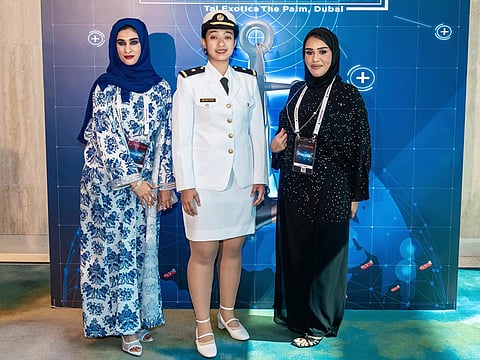Women leading the way: Tristar Group’s commitment to sustainable change
Tristar employs 23 UAE national women among nearly 100 female staff, many in senior roles

Recognising the many strengths that women bring to the workplace and actively promoting their headship will result in robust debate, reduced groupthink, broader impact, a wider range of solutions, and more effective outcomes.
Dubai headquartered Tristar Group sees this as an essential factor for resilience, longevity, and success, and continues to build on the creed to bring corporate and societal change in countries where they operate.
The last decade has seen a dramatic shift from the passive diversity action of including women on staff or training them, to value-driven inclusion and grooming of female leadership.
It stands to reason that merely recognising feminine strengths is meaningless when it is not accompanied by supportive action in the workplace.
However, the conscious act of combining recognition with validation can be transformative as it leverages the full spectrum of human potential within the workforce and creates a more successful and sustainable company.
In parallel, the importance of hiring women, and grooming them for leadership roles, has become starkly evident in sectors like oil and gas, construction, manufacturing, heavy industry, and supply chain.
Women professionals in hitherto male-only roles are not just bringing in diversity and competitive advantage to any single company, they are serving as catalysts for essential industry-wide change.
Examples from Tristar’s international operations typify how gender parity in the workplace and the empowerment of female professionals continue to evolve beyond social responsibility.
From merely seeing or appreciating the capabilities of women professionals, the corporate mission has changed to integrating, promoting, and hailing them as core drivers of organisational success.
Redefining pigeonholes
In the Maritime Logistics division - in an industry conventionally reserved for men - Tristar has been recruiting and training female seafarers for some years now and building inclusive environments where they are able to thrive in professional roles that range from deck cadets to engine officers and marine engineers. Two of these female engineers are public advocates for careers at sea for women.
Tristar also works with maritime academies to welcome more female cadets on training contracts, with a view to broaden the seafaring demographic, and increase commercial flexibility and resilience.
These initiatives align with by the International Maritime Organisation’s (IMO) ‘Women in Maritime’ programme which advocates for greater female participation in the maritime industry to sustain it.
Breaking societal barriers
Across Africa, Tristar actively encourages young women to pursue fulfilling and financially secure careers within their road transport, warehousing, commercial fuel, turnkey fuel supply, and airport operations, by supporting their education and providing skills training.
While most candidates opt to work in administration, human resources or retail, a young Ugandan woman expressed an unusual interest in operations.
With the active sponsorship of senior management, and after an intense six-month training on JET A-1 fuel handling with field experts, she is the Lead Operator for truck gantry operations at the Entebbe International Airport Fuel Farm managed by Tristar.
In Kenya, senior Tristar staff urged a young woman seeking employment to test her interest and skills in warehousing operations. She is currently Product Storage In-Charge at Tristar’s Africa Fuels & Lubricants (AFAL), and the only female professional among teams of men.
Tristar’s Africa teams believe that seeing women excel in technical or operational roles greatly inspires other young women and girls to pursue similar careers, while signaling to the existing workforce that it is talent and capability, not gender, that defines success. They also endorse it as a crucial element in building a sustainable talent pipeline for the future.
Supporting authorities
The Tristar Group is an active member of the UAE Gender Balance Council’s SDG 5 Pledge, which in its second phase urges private sector commitment to gender equality and increasing women’s representation in middle and senior management roles to 30 per cent by 2028.
Across its UAE offices, Tristar currently has 23 UAE national women on the roster working alongside a larger female staff count of almost 100, some of whom hold senior managerial positions in finance, recruitment, marketing, and business development.
Encircling the extent
Tristar is a signatory to the UN Women’s Empowerment Principles and runs several initiatives to provide equal opportunities to women, spotlight women’s health and wellness, and increase female representation in leadership.
In 2024, women employees in the UAE and Pakistan were invited to breast cancer awareness sessions conducted by the Pink Caravan initiative. The contributions and achievements of female professionals were celebrated publicly on International Women’s Day in the UAE, Guam, Kenya, and Sri Lanka, and on Emirati Women’s Day and Omani Women’s Day in the UAE and Oman, respectively.
In many countries, Tristar runs localised community initiatives for girls’ education, female empowerment, financial literacy, and work-life balance.



